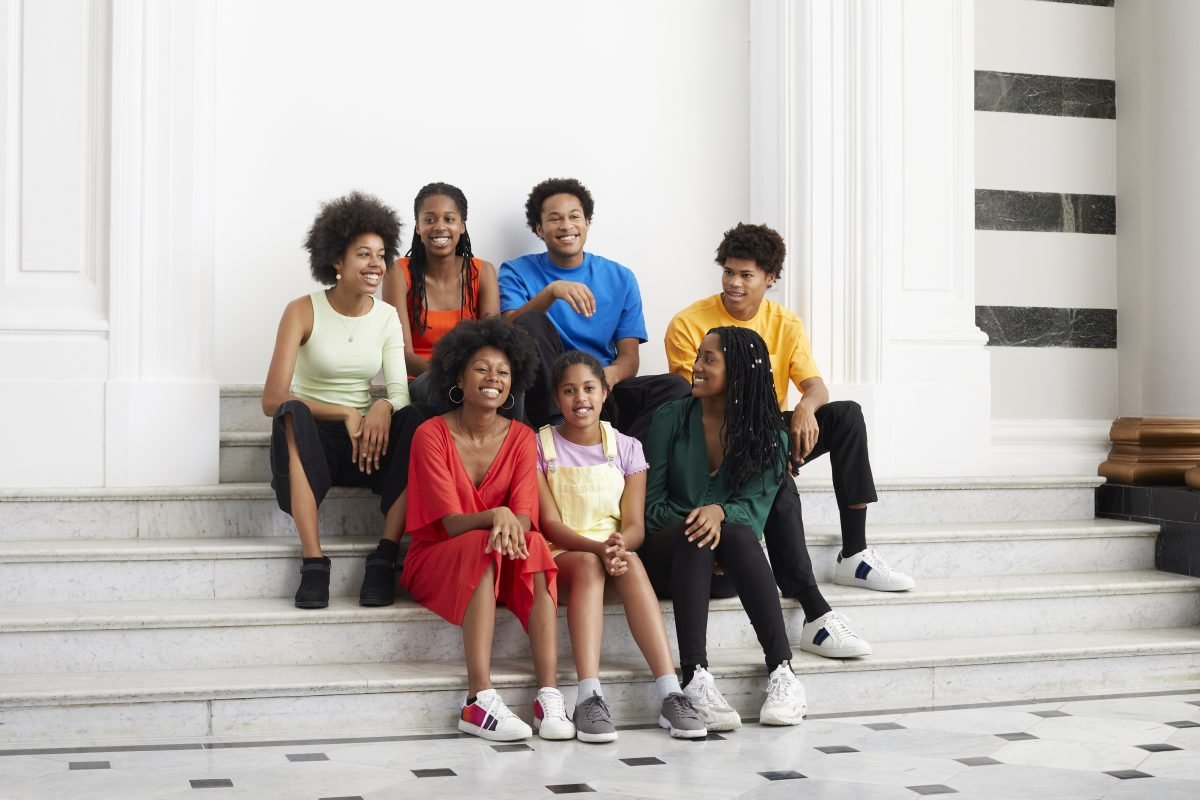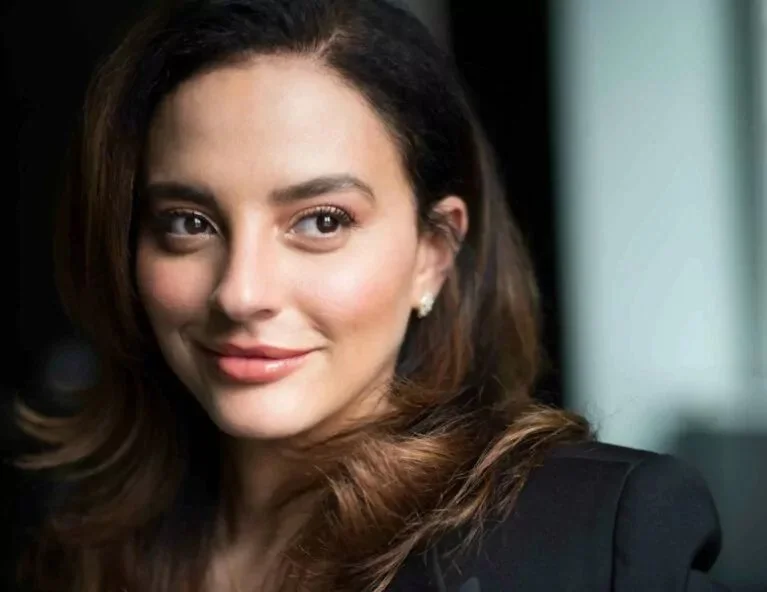Coming to Vancouver from the UK, sensational Kanneh-Mason family wows audiences worldwide
Here’s everything you need to know about the seven siblings ranging in age from 13 to 26 who play cello, violin, and piano
The Kanneh-Masons. Photo by Jake Turney
Vancouver Recital Society presents Kanneh-Mason Celebration on May 5 at 8 pm at the Orpheum Theatre
AFTER THE KANNEH-MASONS appeared on Britain’s Got Talent in 2015, notoriously hard-to-please Simon Cowell said the siblings were “probably the most talented family in the world”. They are seven siblings: Isata (26 years old, piano), Braimah (25, violin), Sheku (23, cello), Konya (22, violin and piano), Jeneba (20), Aminata (17, violin and piano), and Mariatu (13, cello and piano).
Ever since that reality-show appearance which blew the judges away, the Nottingham, England-based musicians have taken the globe by storm, performing everything from Bach to Bob Marley together, individually, and in various configurations all over the map.
The Kanneh-Masons are coming to Vancouver for a one-night-only performance via Vancouver Recital Society, for a program of Beethoven, Mendelssohn, Rachmaninov, Shostakovich, Brahms, and more. Here’s all you need to know about the superstar siblings.
The Kanneh-Masons’ parents aren’t professional musicians, though they both played instruments and raised their kids in a house full of music—classical, reggae, rap, rock, country, African-American spirituals, and more. The siblings all had state (public) education in Nottingham at a school that integrated music into the curriculum. All of them attend or have attended London’s Royal Academy of Music and its primary and junior academies, except for Jeneba, who moved on to London’s Royal College of Music for her undergraduate studies.
Their father, Stuart Mason, is a business manager for a luxury-hotel chain whose family is from Antigua; their mother, Sierra Leone native Kadiatu Kanneh, is a former university lecturer in literature at the University of Birmingham. In 2020, Kadiatu wrote House of Music: Raising the Kanneh-Masons, about her experience of raising a musical family in Britain. Kadiatu told the Financial Times in an interview that she had always been determined “never to remark on the lack of black people in classical music to our children”.
On Britain’s Got Talent, the Kanneh-Masons made it to the semi-finals, playing played a medley of Tchaikovsky’s Swan Lake and 1812 Overture, Prokofiev’s “Montagues and Capulets” and “Rather Be” by Clean Bandit, a band for which Braimah plays violin. (Mariatu was the only family member not on-stage; she was too young at the time.) Echoing Cowell’s praise, the other judges remarked on how much fun the siblings seemed to be having, their enhusiasm, joy, and stunning skill having the potential to introdce classical music to a whole new audience worldwide.
They’ve been gaining international adoration ever since. Sheku, Isata, Braimah, Konya, and Jeneba performed at the 2018 BAFTAs ceremony. In 2019, the whole family played at the Royal Variety Performance, winning over Prince William and Kate Middleton (then the Duke and Duchess of Cambridge) and everyone else in the crowd with Monti’s Czárdás. In 2020, the family released their debut album, Carnival, built around Saint-Saëns’s Carnival of the Animals and recorded at London’s Abbey Road Studios. Featuring compositions by Saint-Saëns, Tchaikovsky, and Eric Whitacre, the release also features audio of actor Olivia Colman reading poems by War Horse author Michael Morpurgo. They gained more audiences during the pandemic, sharing musical sessions from their home online.
Sheku was the first Black winner to gain the title of BBC Young Musician in 2016. You might have caught him in his once-in-a-lifetime performance in 2020, when he performed at Harry and Meghan’s wedding in front of an audience of 1.9 billion. He played “Sicilienne” by Paradis, Faure’s “Après un rêve”, and Schubert’s “Ave Maria”, having recommended the first two titles, while the Duke and Duchess of Sussex requested the last. He has released two solo albums: 2016’s Inspiration and Elgar (2020), with the latter making him the first cellist in history to score a hit in the UK Official Album Chart Top 10. In 2021, he and Isata released Muse, their first full album as a duo. The year 2020 gave rise to the “Sheku effect”, with more young people in England than ever before signing up for cello lessons. He is an ambassador for London Music Masters, a charity that offers musical support to public primary-school children in London.
In an interview with Black Lives in Music, an organization supporting Black musicians and music creators in the UK, Sheku said that his parents always showed him and his siblings role models, despite the fact that there weren’t many Black classical musicians they could look up to.
“We’d watch documentaries of Muhammad Ali, Bob Marley and read about great Black heroes, and we were so inspired by the notion that as a Black person, you can do anything,” the cellist said. “It’s very, very difficult to see yourself doing something if no-one who looks like you is doing it. It’s very obvious there’s an extreme lack of diversity in classical music. But we’re already seeing some change – Black people are feeling like they can be up there in classical music.”
Isata debuted at the top of the UK Official Classical Artist Chart with Romance: The Piano Music Of Clara Schumann. Isata’s third album (after Muse with her brother), Childhood Tales, is coming out this month. While at the Royal Academy of Music, Isata earned the prestigious Sir Elton John Scholarship and performed with the mega star himself in Los Angeles in 2013. This season, she is artist in residence with the Royal Philharmonic Orchestra, and performs regularly with BBC Scottish Symphony Orchestra and the Royal Liverpool Philharmonic. Other highlights for 2022-23 include performances at the Barbican, Queen Elizabeth, and Wigmore halls in London; the Philharmonie Berlin, National Concert Hall Dublin, Perth Concert Hall, Prinzregententheater Munich, and the Sala São Paulo; and with New World Symphony Miami, Barcelona Symphony, Geneva Chamber Orchestra, Detroit Symphony, and LA Philharmonic, among others.
“I think all children actually have genius…and it’s all about championing that. What we saw in Isata, our eldest, was incredible facility and we decided to channel it in music, and absolutely encourage it,” Kadiatu says in her memoir. “Genius is something you really, really want to do, which is probably more important than something called ‘talent’. It’s loving something, wanting to do it, having the thirst to do it, and then channelling that hard work. It’s not something you are born with, because if you do nothing about it, it goes nowhere.”














